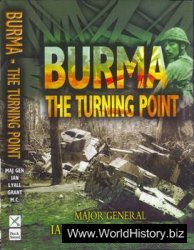Outside of the South, the main issue concerned municipal government. This was complicated by the religious and ethnic character of the city dwellers and by the special problems of late-nineteenth-century urban life: rapid, helter-skelter growth; the influx of European immigrants; the need to develop costly transportation, sanitation, and other public utility systems; and the crime and corruption that the size, confusion, and anonymity incidental to urban existence fostered.
The immigrants who flocked into American cities in the 1880s and early 1890s were largely of peasant stock, and having come from societies unacquainted with democracy, they had no experience with representative government. The tendency of urban workers to move frequently in search of better jobs further lessened the likelihood that they would develop political influence independently.
Furthermore, the difficulties of life in the slums bewildered and often overwhelmed newcomers, both native - and foreign-born. Hopeful, but passive and naive, they could hardly be expected to take a broad view of social problems when so beset by personal ones. This enabled shrewd urban politicians—most of them in this period of Irish origin, since the Irish being the first-comers among the migrants and, according to mobility studies, more likely to stay put—to take command of the city masses and march them in obedient phalanxes to the polls.
Most city machines were loose-knit neighborhood organizations headed by ward bosses, not tightly geared hierarchical bureaucracies ruled by a single leader. “Big Tim” Sullivan of New York’s Lower East Side and “Hinky Dink” Kenna of Chicago were typical of the breed. Sullivan, Kenna, and others like them performed many useful services for people they liked to think of as their constituents. They found jobs for new arrivals and distributed food and other help to all in bad times. Anyone in trouble with the law could obtain at least a hearing from the ward boss, and often, if the crime was minor or due to ignorance, the difficulty was quietly “fixed” and the culprit was sent off with a word of caution. Sullivan provided turkey dinners for
5,000 or more homeless people each Christmas, distributed new shoes to the poor children of his district on his birthday, and arranged summer boat rides and picnics for young and old alike. At any time of year the victim of some sudden disaster could turn to the local clubhouse for help. Informally, probably without consciously intending to do so, the bosses educated the immigrants in the complexities of American civilization, helping them to leap the gulf between the almost medieval society of their origins and the modern industrial world.
The price of such aid—the bosses were not altruists—was unquestioning political support, which the bosses converted into cash. In New York, Sullivan levied tribute on gambling, had a hand in the liquor business, and controlled the issuance of peddlers’ licenses. When he died in 1913, he was reputedly worth $1 million. Yet he and others like him were immensely popular; 25,000 grieving constituents followed Big Tim’s coffin on its way to the grave.
The more visible and better-known city bosses played even less socially justifiable roles than the ward bosses. Their principal technique for extracting money from the public till was the kickback. To get city contracts, suppliers were made to pad their bills and, when paid for their work with funds from the city treasury, turn over the excess to the politicians. Similarly, operators of streetcar lines, gas and electricity companies, and other public utilities were compelled to pay huge bribes to obtain favorable franchises.
The most notorious of the nineteenth-century city bosses was William Marcy Tweed, whose “Tweed Ring” extracted tens of millions of dollars from New York City during the brief period of 1869-1871. Tweed was swiftly jailed. More typical was Richard Croker, who ruled New York’s Tammany Hall organization from the mid-1880s to the end of the century. Croker held a number of local offices, but his power rested on his position as chairman of the Tammany Hall finance committee. Although more concerned than Tweed with the social and economic services that machines provided, Croker was primarily a corrupt political manipulator; he accumulated a large fortune and owned a mansion and a stable of racehorses, one of which was good enough to win the English Derby.
Despite their welfare work and their popularity, most bosses were essentially thieves. Efforts to romanticize them as the Robin Hoods of industrial society grossly distort the facts. However, the system developed and survived because too many middle-class city dwellers were indifferent to the fate of the poor. Except during occasional reform waves, few tried to check the rapaciousness of the politicos.
Many substantial citizens shared at least indirectly in the corruption. The owners of tenements were interested in crowding as many rent payers as possible into their buildings. Utility companies seeking franchises preferred a system that enabled them to buy favors. Honest citizens who had no selfish stake in the system and who were repelled by the sordidness of city government were seldom sufficiently concerned to do anything about it. When young Theodore Roosevelt decided to seek a political career in 1880, his New York socialite friends laughed in his face. They told him, Roosevelt wrote in his autobiography, “that politics were ‘low’; that the organizations were not controlled by ‘gentlemen’; that I would find them run by saloonkeepers, horse-car conductors, and the like.”
Many so-called urban reformers resented the boss system mainly because it gave political power to people who were not “gentlemen” or, as one reformer put it, to a “proletarian mob” of “illiterate peasants, freshly raked from Irish bogs, or Bohemian mines, or Italian robber nests.” A British visitor in Chicago struck at the root of the urban problem of the era. “Everybody is fighting to be rich,” he said, “and nobody can attend to making the city fit to live in.”




 World History
World History









